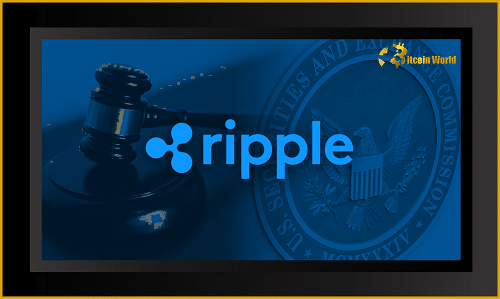The legal battle between Ripple Labs and the Securities and Exchange Commission (SEC) continues to be a major talking point in the crypto world. Both sides have now requested a summary judgment, urging a federal judge to make a ruling based on the evidence presented, without proceeding to a full trial. What’s at stake, and what could this mean for the future of XRP?
Ripple and SEC Request Summary Judgment: What Does It Mean?
On September 17th, both Ripple and the SEC filed separate motions for summary judgment in the United States District Court for the Southern District of New York. In essence, both parties believe they have presented enough evidence to warrant a favorable decision from Judge Analisa Torres.
Key Takeaways:
- A summary judgment is requested when a party believes there’s enough evidence for a ruling without a full trial.
- Both Ripple and the SEC are pushing for a quick resolution.
Ripple’s Argument: SEC Lacks Evidence
Ripple maintains that the SEC has failed to provide sufficient evidence to prove that XRP sales constitute an investment contract. CEO Brad Garlinghouse has been vocal about his belief that the SEC is overreaching its authority.
Garlinghouse’s Stance:
- The SEC is attempting to expand its jurisdiction beyond what Congress has granted.
- The SEC is not interested in applying the law as it is written.
SEC’s Argument: Investment Contract Exists
The SEC, on the other hand, argues that an investment contract can exist even without a formal contract or explicit rights granted to the purchaser. They believe that Ripple’s actions led investors to expect profits based on Ripple’s efforts.
The Howey Test: A Central Point of Contention
The Howey Test is a Supreme Court case used to determine whether a transaction qualifies as an investment contract. Ripple’s general counsel, Stuart Alderoty, argues that the SEC cannot prove a single prong of the Howey Test after two years of litigation.
Ripple’s Argument Against the Howey Test Application:
- The SEC cannot demonstrate a contract for investment.
- The SEC’s case boils down to an overly broad assertion of jurisdiction.
- There were no contractual obligations between Ripple and XRP holders.
Market Forces vs. Ripple’s Efforts
Ripple contends that any profits XRP holders may have seen were due to market forces of supply and demand, not solely because of Ripple’s actions. They highlight that the SEC has seemingly agreed to this point.
What Happens Next?
Judge Analisa Torres will now review the arguments and evidence presented by both sides. A ruling on the summary judgment motions could significantly impact the future of Ripple and XRP.
The Implications
The outcome of this case has far-reaching implications for the cryptocurrency industry. A ruling in favor of the SEC could set a precedent for how digital assets are regulated in the United States. Conversely, a win for Ripple could provide more clarity and potentially foster innovation in the crypto space.
Potential Outcomes:
- SEC Victory: Increased regulation and scrutiny of digital assets.
- Ripple Victory: Greater clarity and potential for innovation in the crypto industry.
In Conclusion
The Ripple vs. SEC case is a landmark legal battle that will shape the future of cryptocurrency regulation. The request for summary judgment signals that both sides are eager for a resolution. The crypto community awaits Judge Torres’s decision with bated breath, as it could have profound consequences for the entire industry.
Disclaimer: The information provided is not trading advice, Bitcoinworld.co.in holds no liability for any investments made based on the information provided on this page. We strongly recommend independent research and/or consultation with a qualified professional before making any investment decisions.




